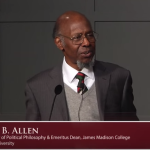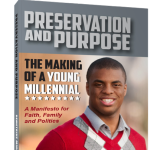Charter School Health Improves, Gives Hope to Parents and Students
At the Thomas B. Fordham Institute, several public charter school officials lauded the rising popularity of charter schools across the United States. Kenneth Campbell, president of Louisiana’s Black Alliance for Educational Options, Scott Pearson, executive director of the D.C. public charter school board, and Todd Ziebarth, senior vice president of state advocacy and support for the National Alliance for Public Charter Schools, spoke at the event.
Ziebarth summarized findings from a recent study by his organization, the National Alliance for Public Charter Schools, on the health of public charter schools in the U.S. Their study, “The Health of the Public Charter School Movement: A State-By-State Analysis,” ranked 26 states out of 43 that had public charter schools and laws in place. The top five healthiest schools in the movement are in the District of Columbia, Louisiana, Michigan, New Jersey and New York. The study also found that the weaker part of the movement is located in Nevada, Oregon and Utah.
Ziebarth said certain states were not ranked because “the laws are so bad that charters aren’t opening up.” He also pointed out that the results may rank some states higher than others. New Jersey, for example, ranks fourth in the study, but is considered weak in the movement itself. However, the state is improving the strength of its laws and that contributed to its ranking.
The District of Columbia is a unique situation because it serves minorities, shows significant academic growth and 49% of the district’s schools are chartered. Nevada is the opposite, since only 5% of its schools are public charter schools with low minority participation. But, Ziebarth noted that the Nevada state legislature has taken steps to strengthen accountability and improve existing charter school laws on the books. This shows that data collection “must be a priority” in order to advance and improve the public charter school movement.
Ziebarth pointed out, “[When] your charter school performs as well as your school district, that’s a good thing” because “it just provides another option.” He noted it is not beneficial if charter schools are performing as well as public schools in poorly-performing districts. Ziebarth continued, “Charters are the ultimate form of local control, if done well” and if it is not done well, “you’re running the risk of real backlash” from the community. Too often, opponents of public charter schools are “seizing on the undemocratic nature” of the movement, but it requires good administrators (or in education terms, “authorizers”) to do “a better job scrutinizing” for-profit charter schools. Ziebarth said, “We’re seeing too many authorizers falling down on the job” by approving poorly-run and poorly-performing charter schools. Also, the emergence of online-only, or “virtual” charter schools can help a certain part of the student population, but not all. Ziebarth noted, “You still have to be super selective” about charter schools.
As a result of the rise of D.C. charter schools, the public school system is “a lot better than [it] used to be…and they are competing hard” for students and parents. Competition requires that public schools that are not chartered need “to up their game” each and every year. “Our single-minded focus is quality,” Pearson said, and he pointed out how “the rate of market share growth” of charter schools has “slowed…the last three years.” Now, “people are coming back to the city” for school as the city has tightened charter school regulation and improved education as a whole. “
Pearson estimated that there are about “400 people directly involved with the public schools” in the city and “by some measures, we have increased by more than thirtyfold, the number of citizens who are involved in overseeing public schools.” Also, the emergence of public charter schools helps diminish how “too much politics can get in the way” of public education.
In Louisiana, Campbell said, “We really have been trying to ratchet up” the improvements in charter schools and “we make really good and tough decisions…when it comes to renewal.” He estimated the state has closed up to 12 poor-performing charter schools lately because “from the very beginning, expectations are high” for success, and when charter schools do not meet state standards, they are shut down. Failure is a part of charter schools because “to be a good authorizer, you have to go through the pains” to see how the process works, said Campbell. He said, sometimes we need “bad tasting medicine” from closures to “help us to grow smartly as we go forward.”
He saw “decades of failure” in Louisiana education, of how educators had strong family ties lasting a couple generations, and politics took precedence over education. Campbell said, “There is an advantage…to take away some of the politics” in public education by using charter schools. He told the audience, “We’ve grown all we can” with a 100% capacity in New Orleans, but added, “we will see a lot more growth in Baton Rouge.”





